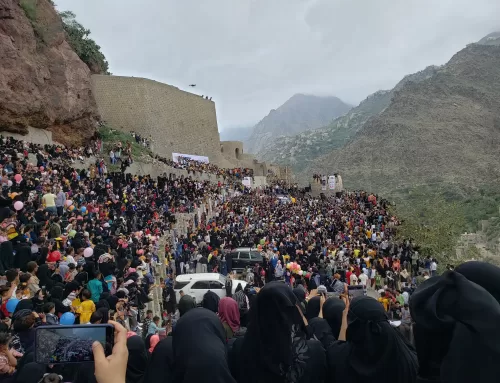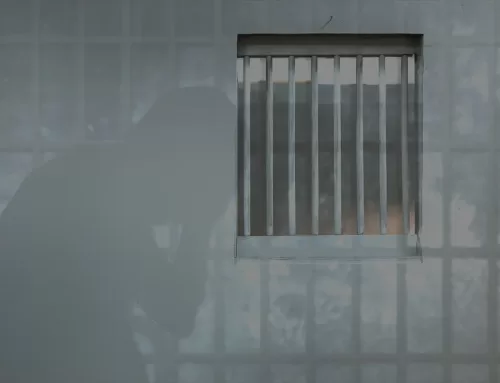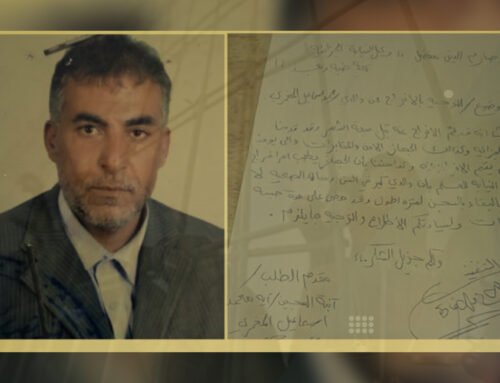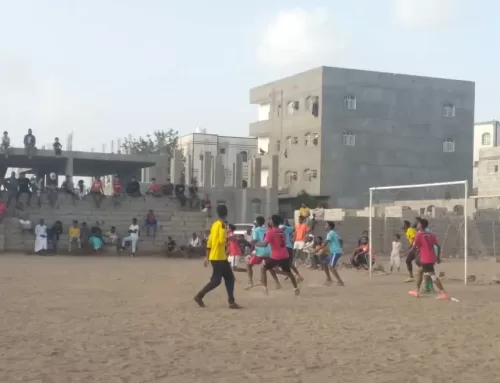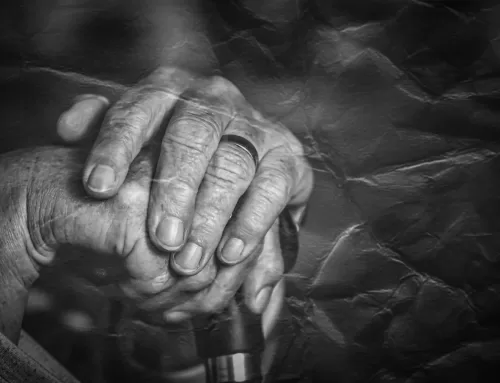15 June 2022
Hani Ahmed
It seems that there is no imminent conclusion to the story of the Yemeni suffering. Whenever a dark page is turned, we are faced with yet a darker one. Every time we think that our tragedies are over, we realize that it is only the beginning of a new chapter of tragedies and pain.
At 6 am, just like every day, Nader (pseudonym) (13 years old) and his cousin Jameel (pseudonym) (15 years old) wake up. They then have breakfast and lead their sheep to gaze on the grass and bushes in Al-Day’ah valley, Bani Mansour sub-district, Ba’adan district, Ibb governorate.
By noon, when the blazing sun becomes unbearable, the two children return home to rest and have their lunch before they lead their sheep again to the pasture as the sunlight begins to fade.
On Monday, 23 June 2021, at 4:00 pm, when the sun began to cool Jameel led his flock of sheep again from his parents’ house to the pasture.
His cousin, Nader, who is two years younger than him, also led the sheep out of the house and was standing on the side of the road waiting just like every day.
The two children met and led their sheep towards Al-Day’ah valley. Little did they know that after a short while they would find themselves exchanging roles with their sheep that would lead them this time to a well-executed ambush and a bloody fate.
Near to the lush and green valley that is covered with corn crop, barely crop, and potato plants, stands Odanah mountain. Due to its strategic location, Odanah mountain had witnessed fierce battles between the forces of the internationally recognized government and Ansar Allah group (Houthis) before the latter advanced towards Al- Fakher area, Qa’atabah district, Al- Dhale governorate and planted mines into the mountain like the villagers plant the corn seeds.
The two children, Nader and Jameel, reached the valley with their flock of sheep. The sheep scattered on the grassy ground. Everything seemed calm and normal. However, everything changed when some of the sheep strayed out of the flock and began to climb Odanah mountain.
If fire starts with a spark either by a chance or by mistake, the tragedy of the two children Jameel and Nader, even if such tragedy is surrounded by a moment of heedlessness and oversight, is not mere coincidence or the result of misfortune of one of them. It is rather the result of a well-planned premediated action.
What happened next was narrated by the mother of the child, Jamil:
“It was about five pm when I left the house to sit on the doorstep. A sudden feeling of anxiety grew inside of me forcing me to go out.
I saw the sheep climb Odanah mountain and my son Jameel and my nephew Nader were running towards them trying to bring them back to the valley.
My heart was pounding increasingly as I saw them running towards the mountain because about one year and a half ago a mine exploded under a folk of sheep on this very same mountain. When Jameel and Nader got closer to the strayed sheep, a loud explosion was heard.”
Odanah mountain is about 950 meters away from the victim’s house. The mountain and Al-Day’ah village, which is located in its vicinity, are two strategic locations as they are among the border areas between Ibb and Al- Dhale governorates.
The mother explains:
“I heard the explosion and saw a thick cloud of smoke rising into the air where my two children were standing. I felt, then, that my heart was ripped from my chest and that my soul left my body. The smoke and dust got mixed and covered the place.
Unconsciously and aimlessly, I ran towards the mountain. My body was trembling. Every now and then and every time I thought about the possibility that they might have died, my legs would fail me and I would fall to the ground and…”
The victim’s mother breathed heavily once, twice, and thrice as if trying to push something stuck down her throat. She was trying to push it deep, bury it and hopefully get rid of it.
“Sometimes I would stop suddenly, not to rest because I was not tired but because it seemed to me that there was a wall standing in front of me and that I would bang on it if I kept going.
This wall was nothing but my fear that I would only go there to see them dead and that this image would be engraved in my memory forever so that I would see them only in that image; soaked in blood and covered with gunpowder and dust as their bodies lying on the ground.”
The 45-year old Nabila (pseudonym) stopped talking to make room for the tears and sobbing suppressed in her chest.
I was not surprised by that because ever since she started talking about what happened to her son and her nephew her voice’s pitch would become hoarse and strained as she keeps talking with more details about the incidence.
While she was telling me what happened, her gazing eyes were looking far towards a point no one else but her could see it. In the midst of it all, her eyes were glittering with profound grief. Nevertheless, despite what had happened her sadness was that of a noble and transcending nature.
Some residents of Al-Day’ah village rushed to the site of the explosion. The smell of gunpowder that has mixed with the smell of blood and dust filled the place. There on the ground beside the torn pieces of sheep were the bodies of Jameel and Nader lying motionless and covered in blood.
“Following the explosion, my wife and I left the house to find out the cause and the site of the explosion.” Nader’s father said.
The men and women of the village, of different ages, were running towards the mountain’s direction, with their eyes fixed on the cloud of smoke and dust that is still rising high in the air.
It was an open frantic marathon that everyone joined including Nader’s parents.
“When we reached the bottom of the mountain and smelled the blood that the wind carried towards us, we realized that a disaster had befallen. But the question that tormented us at that moment was: On whom it befell?
I knew the answer only two minutes later. The disaster has befallen me and my sister… not only us but our whole family.”
“Carried on the shoulders and covered in their blood, the two children Jameel and Nader were taken to the hospital. They were motionless and soaked in dry and flowing blood. We have tried to stop the bleeding but to no avail.” Said one of the witnesses.
The bleeding continued even after they got to the hospital. Their injuries were serious and the chances of their survival were minimal in light of the limited capacities of the Al- Ejil Infirmary in Al- Layl souk, Al- Sabra district.
The father’s victim, Khaled says, “As soon as the infirmary staff saw the victims’ condition, they denied their admittance and they did not make the slightest attempt to stop the bleeding.”
In a relentless race against death, the two children Jameel and Nader were transferred to Al- Thawra General Hospital Authority in Ibb city, which is about 45km away from the location of the incidence. There in the emergency department they finally received the basic medical care.
“The doctor on duty in Al- Thawra Authority told me that if a few more moments had been wasted they would have lost their life due to hemorrhage. They had bled so much that each one of them needed five bags of blood.” Said Khaled.
Jameel underwent two operations in Al- Thawra Hospital Authority. The first operation was exploratory and the second one was to repair two holes in the stomach as a result of the mine shrapnel. However, the shrapnel damage was not limited to the two holes in the stomach but also included several fractures in the legs. His bad condition in addition to the fact that his body could not tolerate anesthesia prompted the doctors to externally fix these fractures.
Jameel stayed in Al- Thawra Hospital as the doctors were concerned that he might be exposed to viral or bacterial infection until one of the humanitarian services providers ensured that Jameel was transferred to Al- Burj Specialized Hospital to complete the phases of treatment.
The case was different with the child Nader, whose multiple and serious injuries overlapped with the extreme poverty of his family, to put us on in front of a complex tragedy.
Although Nader, along with his cousin, had received basic treatment at Al- Thawra Hospital, the doctors had declared the impossibility of treating his injuries and fractures due to their seriousness and the hospital’s lack of specialized staff. Considering all these factors, Nader was transferred to the private Al- Manar Doctors Hospital.
In addition to a tibia fracture, bleeding in the left eye, and a rapture of the nerves in his left thigh, Nader was also injured by multiple shrapnel in the brain including large shrapnel in the right frontal lobe.
Once the doctors of Al- Manar hospital checked the medical file of Nader, they stressed the need for him to immediately undergo a surgery to remove the shrapnel from his brain adding that the movement of the shrapnel threatens to deteriorate his medical condition even further and possibly cause a disability.
Despite this, the hospital refused to carry out the surgery due the fact that the victim’s family cannot afford the costs of this surgery which is nine hundred thousand YR.
Nader’s father works as a daily wage laborer making no more than 3000 YR a day and supports his eight-member family with this small amount of money.
After a benefactor stepped in and paid a part of the surgery fee, Nader was finally admitted to the operation room. The shrapnel was extracted successfully, but Nader slipped into a coma and was subsequently admitted to the intensive care unit (ICU).
From a coma that lasted four days to a series of operations to stabilize the fractures and repair the torn nerves, Nader is still undergoing an indefinite treatment process.
All this is compounded by the difficult financial conditions of the family and inability to pay the costs of the medical treatment, which has so far reached two million YR.
When I visited Nader on the third of July 2021 in Al- Manar Doctors Hospital, his father told me that he has been asleep for an hour. I have decided to postpone my visit to another time so that I do not disturb him, but his father told me to come in assuring that it was ok and that he would not wake up.
I was very careful not to make any noise to the extent that I think I held my breath and tiptoed so that I don’t disturb his sleep.
I approached him and when I was a few steps away from his bed, he suddenly woke up.
He was panting as if climbing a mountain. His left eye was bleeding and shrunken as if it was protecting whatever light remained in it against shrapnel that was still bouncing off from the mountain of doom; the mountain of Odanah.
Mines cause many tragedies. Some of these tragedies leave marks on the victim’s body and can be seen with the naked eye, but the worst and most painful tragedies are those that are not seen; like the fear that grips and haunts the victim, perhaps forever.


